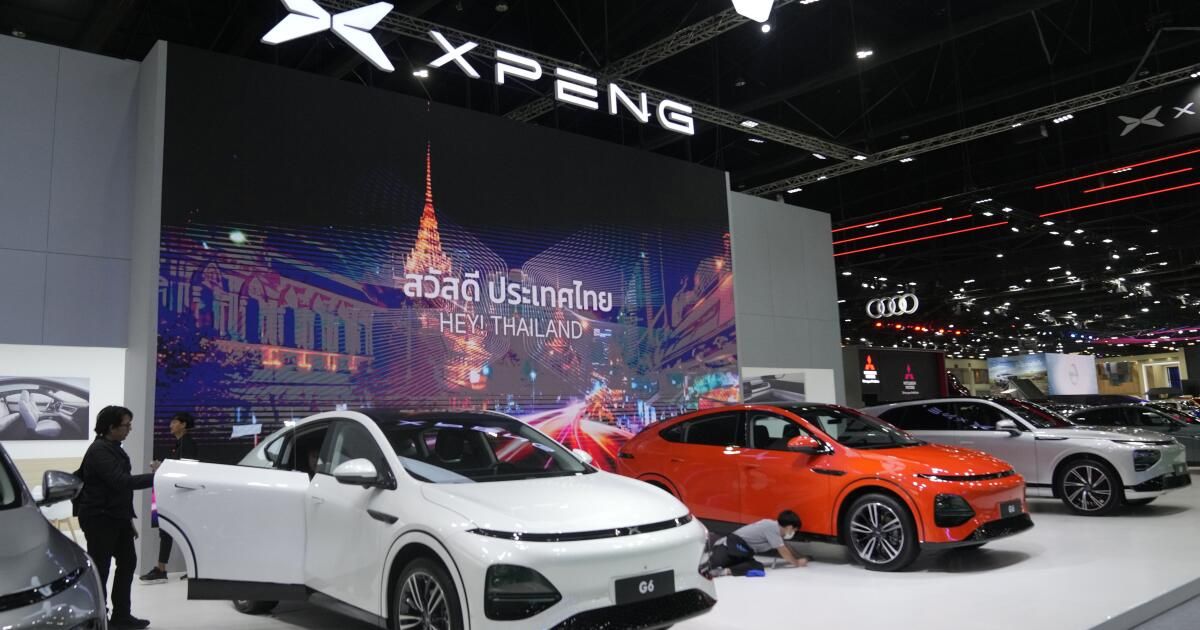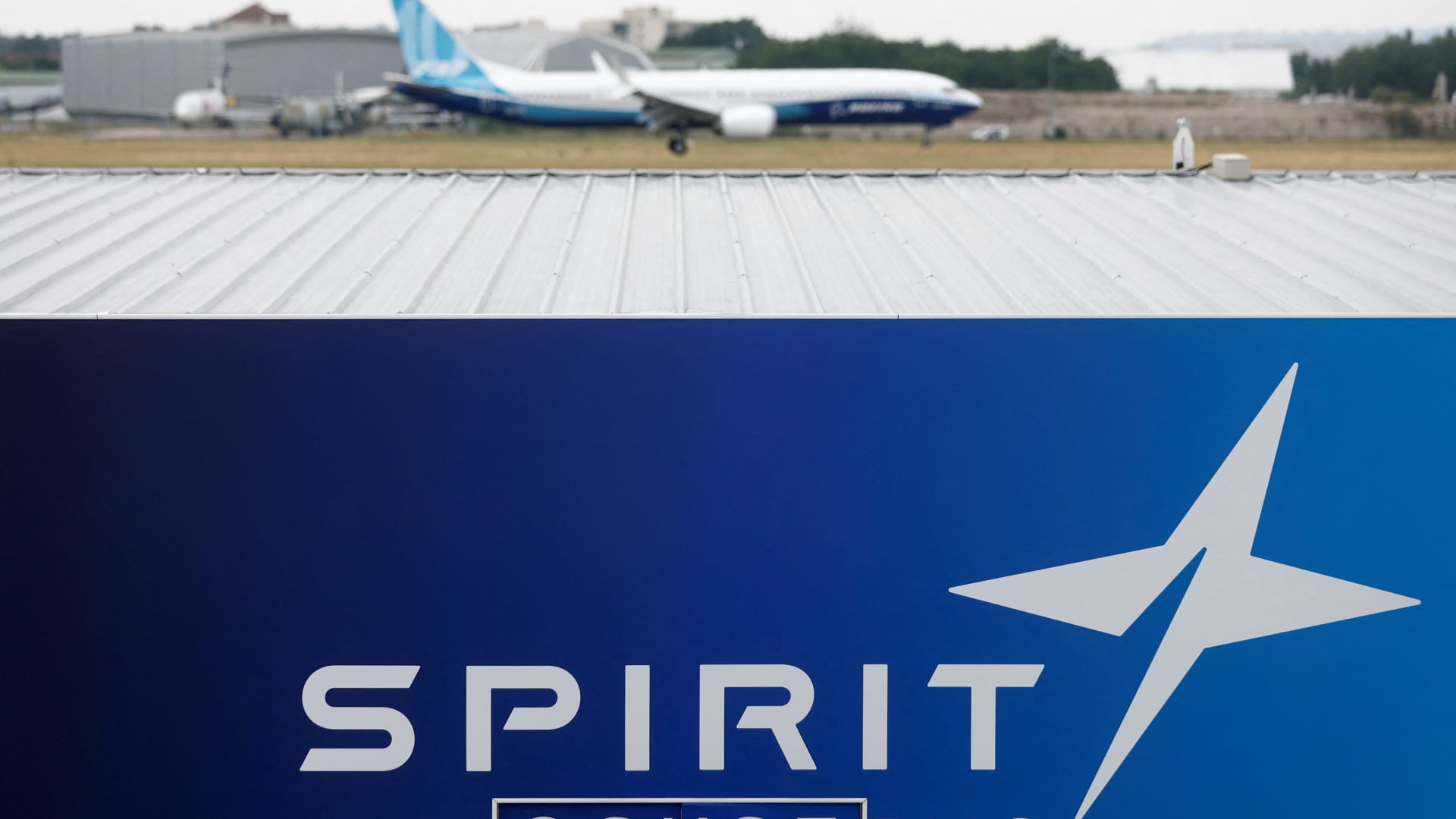BANGKOK— Japanese car factories in Thailand, which for decades have been the main car manufacturing center in Southeast Asia, are closing or reducing operations.
Subaru said it will stop producing cars at its plant this month. Suzuki plans to cease operations at the end of 2025. And Honda and Nissan say they are reducing production.
The main culprit: Chinese electric vehicles.
As the world embraces zero-emission vehicles, Thailand has been courting Chinese automakers, who in their quest for global dominance have spent more than $1.4 billion here as of last year to build electric vehicle factories.
“Japanese automakers are under significant pressure to reduce costs to compete with Chinese brands,” said Larey Yoopensuk, president of the Thai Automobile Workers Federation. “Now they are wondering if it is still worth staying in Thailand.”
Thailand's government, which wants 30% of the cars it produces to be electric by 2030, sees Chinese investment as a crucial piece of the future of its auto industry, which now accounts for 800,000 jobs and 10% of the country's GDP.
The paradigm shift has become a source of anxiety for Thai auto workers, who have long helped produce Japanese cars and the parts that make them up, including exhaust pipes, brakes and doors. Even if Chinese factories replace Japanese ones, Yoopensuk worries there will be no place for him or his colleagues in the new order.
One reason is that Chinese companies in Thailand have historically been intolerant of unions.
“Over the last decade, this industry has boomed, with unionized workers achieving better living conditions and high incomes,” said Yoopensuk, who has worked in auto manufacturing for 35 years. “If forced to lay off, many workers, particularly older workers, could have difficulty finding employment elsewhere.”
He was also concerned that Chinese electric vehicle makers would use more automation and favor immigrants from China and Vietnam over Thai workers when hiring.
“This is an issue that we are fighting, encouraging these companies to also create employment opportunities here,” he said.
China's foray into Thailand's auto industry could foreshadow what is to come in other parts of the world, as adoption of electric vehicles grows and Chinese brands go global. Last year, Chinese giant BYD, which opened a factory in Thailand this summer, briefly surpassed Tesla in global sales.
“I don't think there's any real precedent where those Chinese electric vehicle manufacturers are reshaping the industrial landscape in another country,” said David Williams, an expert on labor standards and supply chains in Asia for the International Labor Organization.
Thailand exports just over two-thirds of the cars it makes, with the bulk going to Australia, followed by Saudi Arabia, the Philippines and Vietnam.
Its most important market is the national one and the news has been discouraging. Total passenger car sales in Thailand fell 23% through September compared to the same period last year. Experts blamed rising household debt and increasingly strict rules for obtaining auto loans.
Electric cars (almost all of them Chinese) were the only positive point, with a sales increase of 11%.
Gasoline-powered cars still account for more than 90% of all sales in Thailand, but that figure is expected to decline as the government continues to push electric vehicles with subsidies for buyers and manufacturers.
BYD said its new plant would eventually create around 10,000 jobs and produce 150,000 vehicles a year. When the company launched in Thailand, its distributor offered deep discounts on several models, bringing the cheapest models to under $25,000.
This has intensified a price war that further threatens Japanese brands, which are struggling to keep up with their own cleaner cars.
According to the Thai government, they have committed to investing more in local production of hybrids (which run on both battery motors and internal combustion engines) and electric pickup trucks. Honda began producing electric vehicles in Thailand last December.
As gasoline-powered cars fall out of favor, some auto parts will become obsolete, such as hydraulic steering systems and alternators.
The Thai Automobile Parts Manufacturers Association. Reportedly, only a dozen of Thailand's more than 600 auto parts manufacturers will be able to supply Chinese electric vehicles.
Those that can shift to making parts for electric cars may still struggle to compete with their Chinese rivals. Some auto parts suppliers have already closed because business has contracted.
Supat Ratanasirivilai, CEO of Thai Metal Aluminum, which produces aluminum parts for Japanese and American cars, said he has been negotiating with Chinese automakers since the beginning of the year.
But those talks have stalled since Chinese companies told him their prices are 30% to 40% too high.
“We hoped that when Japanese automakers' production fell, we could get some benefit from Chinese automakers,” he said. “But they obviously don't buy from Thai suppliers.”
His company is lobbying the Thai government to implement more protection measures for local workers, such as requiring electric vehicles to be made with more locally sourced parts.
“The Thai government is really opening everything up to Chinese automakers. “It has been very difficult for us,” he said. “I don't know what will come next.”
Special correspondent Poypiti Amatatham in Bangkok contributed to this report.









